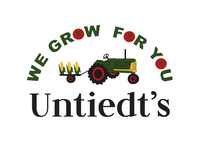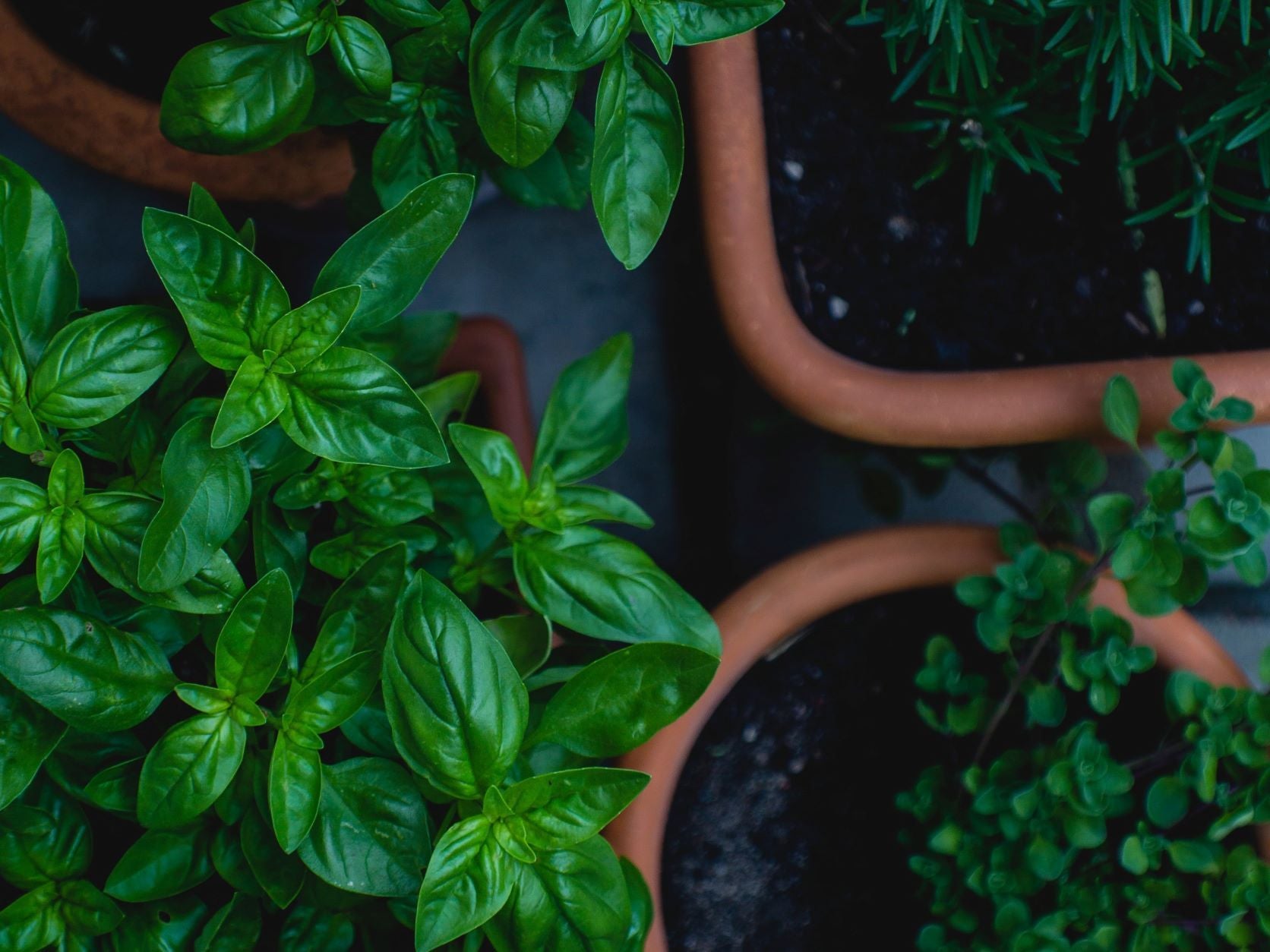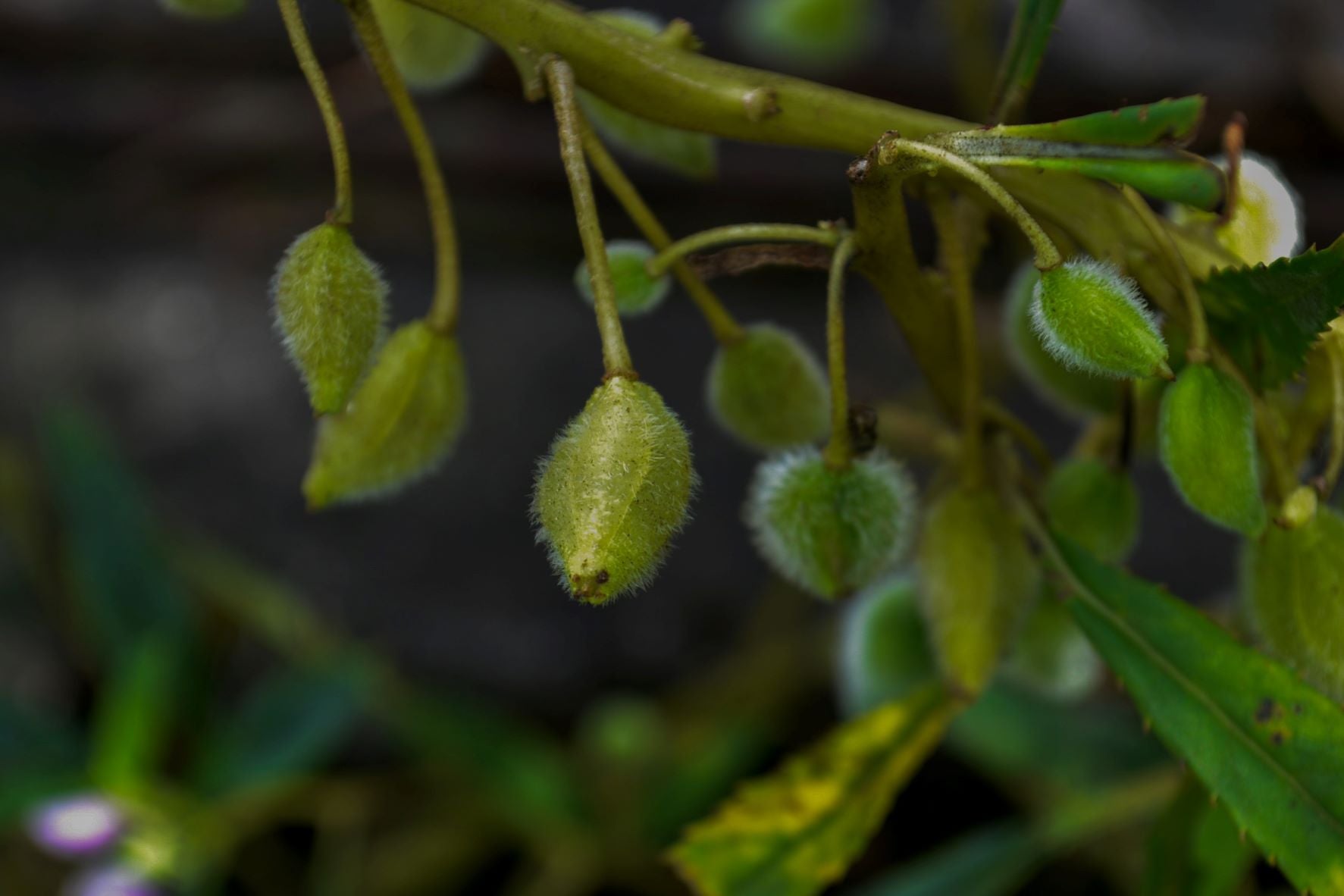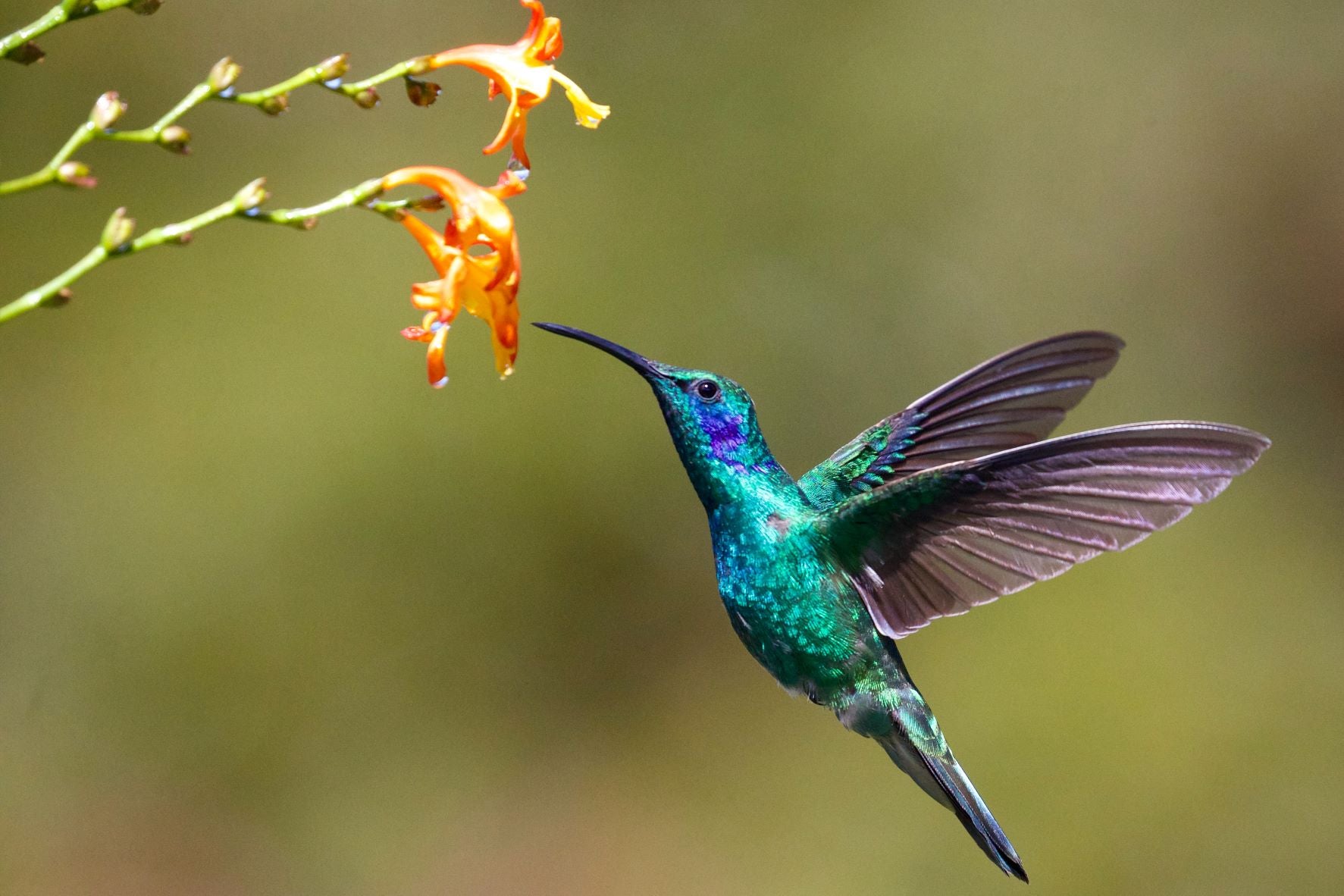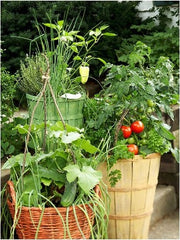
Container gardening for vegetables is great for many reasons. It gives those with little space the ability to grow produce, it can add height to a flat garden bed, and it helps contain some of the larger and more aggressive plants.
It also simplifies the process of gardening – no weeding or soil amending.
Before You Begin
When considering container gardening, there are a few questions you should ask yourself before continuing:
- How much sun will the spot I’m growing in get?
- What do I want to grow?
- How much do I want to grow?
It’s best to take small, slow steps when it comes to gardening, especially with vegetable gardening. Grow what you know you like and will use.
Preparing your Container Garden
Once you’ve determined your sunlight as well as what and how much you want to grow, the next step is to get a container, soil, and some tools like gloves, a garden snips, a trowel, and maybe a watering can.
Whether you’re growing from seed or transplanting, look for terms such as "Patio Variety," "Compact," or "Container Variety." These terms indicate that it is a smaller version of a classic plant that is easy to grow in containers.
Many standard plants can be grown in containers as well, including:
- Beets
- Carrots
- Celery
- Cucumbers
- Eggplant
- Herbs
- Most Lettuce Varieties
- Onions
- Peas
- Peppers
- Pole and Bush Beans
- Potatoes
- Radishes
- Strawberries
- Tomatoes
- Zucchini
Selecting your Containers
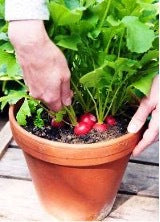
Almost anything can be a good plant container, if it’s big enough, has good drainage, and isn’t harmful to the plant.
The type of soil depends on the plant, but most often, a standard potting soil with some vermiculite will suffice.
Standard plastic pots work great, although some prefer to use ceramic or terracotta pots since the material absorbs heat and helps to keep the plant warm. These are great for peppers, sweet potatoes, and other plants that prefer a higher soil temperature.
Most plants will differ on what size of container they go in, so make sure you do your research! It’s always better to choose a larger container than you think you may need because smaller containers will dry out easier.
Many carrot varieties need large, deep pots in order to grow to their proper size. Zucchinis are notoriously large and aggressive plants, so containing them can be very beneficial. Just be sure you get a pot that will fit its size needs.
Watering your Container Garden
Container-grown vegetable and herb plants will need to be watered every day. Since many of these plants are full sun, sometimes watering twice a day may be necessary when it gets very hot.
As the season progresses, the roots will fill a large majority of the pot in which your plant lives. You may have to water your container plants with a garden hose, if possible, or do a few rounds of watering.
As the roots take up room in the pot, the water runs more freely through the container and the plant has little to no time to absorb the water. This will not always happen, but it’s something to keep in mind if you start to notice your plants looking dry even with frequent watering. Mixing one part vermiculite with four parts soil will help your plant retain moisture.
Fertilizing your Container Garden

Using a fertilizer once a week will also help you succeed at container gardening. Because you will be watering so frequently, the nutrients your soil has will be washed away quickly. Your plants will be much healthier if you replenish those nutrients.
Using a slow-release fertilizer can help give your plants continuous nutrition, but they will still benefit from a weekly all-purpose fertilizer boost.
Container gardening is a fun and inexpensive way to have fresh produce and to try your hand at vegetable gardening, without much of the manual labor. Ask our staff for help in selecting container varieties, or in selecting the best potting soil for your plants!
